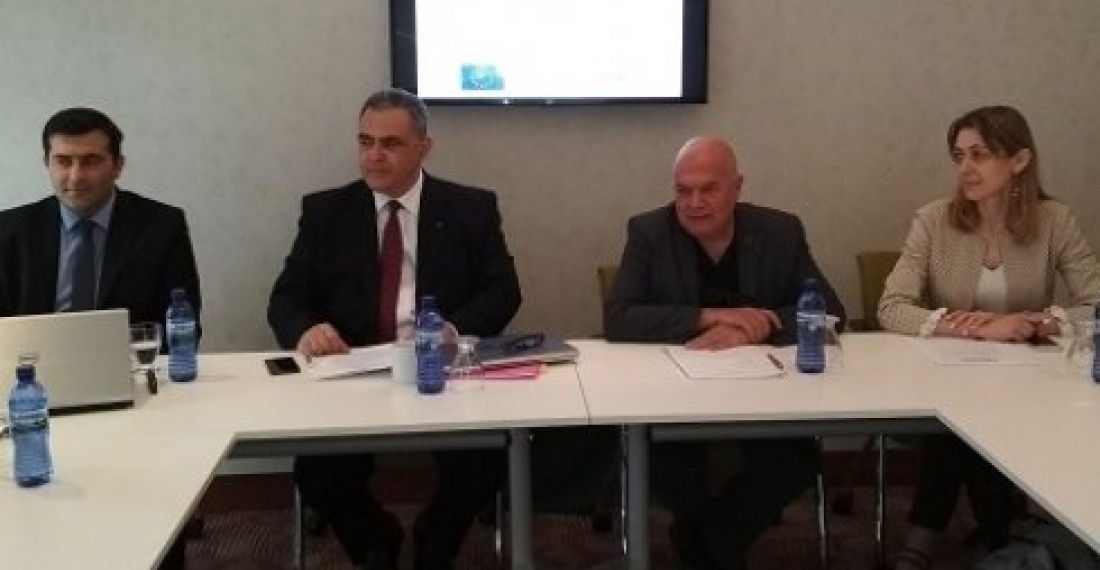The problem of land mines and unexploded ordinance in the South Caucasus was the theme of a round table meeting held in Tbilisi on Tuesday, 16 October 2018.
Representative of the Armenian Centre for Humanitarian Demining and Expertise (ACHDE), Mr Reuben Arakelian; representative of the Azerbaijan National Agency for Mine Action (ANAMA) Mr Elnur Qasimov and representative of the State Ministry for Reconciliation and Civic Equality of Georgia Ms Tamuna Kochoradze made presentations at the meeting, which was also attended by representatives of international organisations including the EU and the UN, military attaches and diplomats based in Tbilisi, and NGO representatives and experts engaged with the issue.
The event was hosted by LINKS (Dialogue, Analysis and Research) which has been working in the South Caucasus on issues related to conflict and confidence-building measures and regional co-operation since 1997. LINKS' current work on the issue of land mines and unexploded ordinance is in the framework of EPNK, a European Union peace-building initiative that has been on-going since 2010.
Addressing the meeting the Director of LINKS (DAR), Dennis Sammut said that thousands of people have been killed or injured as a result of land mines and unexploded ordinance in the South Caucasus in the last thirty years. Great work has been done by national demining agencies such as ACHDE and ANAMA, and by international NGOs such as The HALO Trust. He hailed the hundreds of employees of these organisations who risk their life every day in an effort to clean the region of this dangerous hazard. The problem is more acute in the areas affected by the unresolved conflicts, where the political context is also challenging. He added that Armenia, Azerbaijan and Georgia have not signed the Ottawa convention on demining despite the fact that all other European countries, except Russia, have done so, and he urged the international community to work with the three countries to explore the possibility that they may do so simultaneously sometime in the near future.
Dennis Sammut said there should be increased awareness of this serious humanitarian problem, both in the region and beyond, and the meeting positively assessed the idea of holding a region wide "International day of awareness of the problem of land mines and unexploded ordinance in the South Caucasus" to be held across the region in April 2019. Participants at the meeting commended the efforts being made to eradicate the problem of land mines and unexploded ordinance in the South Caucasus. A number of practical suggestions about how to improve the flow of information on this topic were also discussed. LINKS will convene another meeting in this format in early 2019.
source: commonspace.eu
photo: from l to r Elnur Qasimov (ANAMA Azerbaijan), Dennis Sammut (LINKS), Reuben Arakelian (ACHDE, Armenia) and Tamuna Kocoradze (Georgian State Ministry for Civil Integration, at the round table on Land Mines and Unexploded Ordinance issues in Tbilisi on 16 October 2018.







